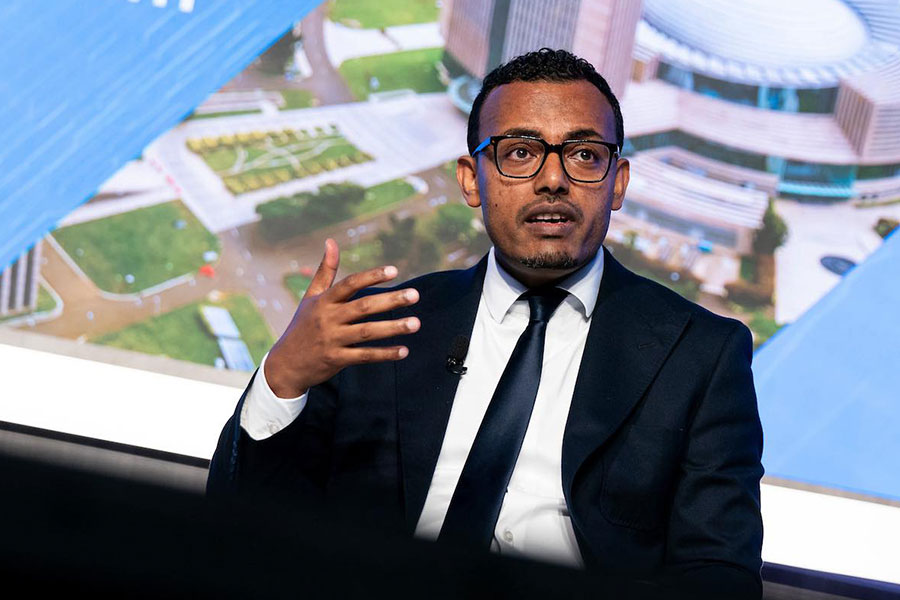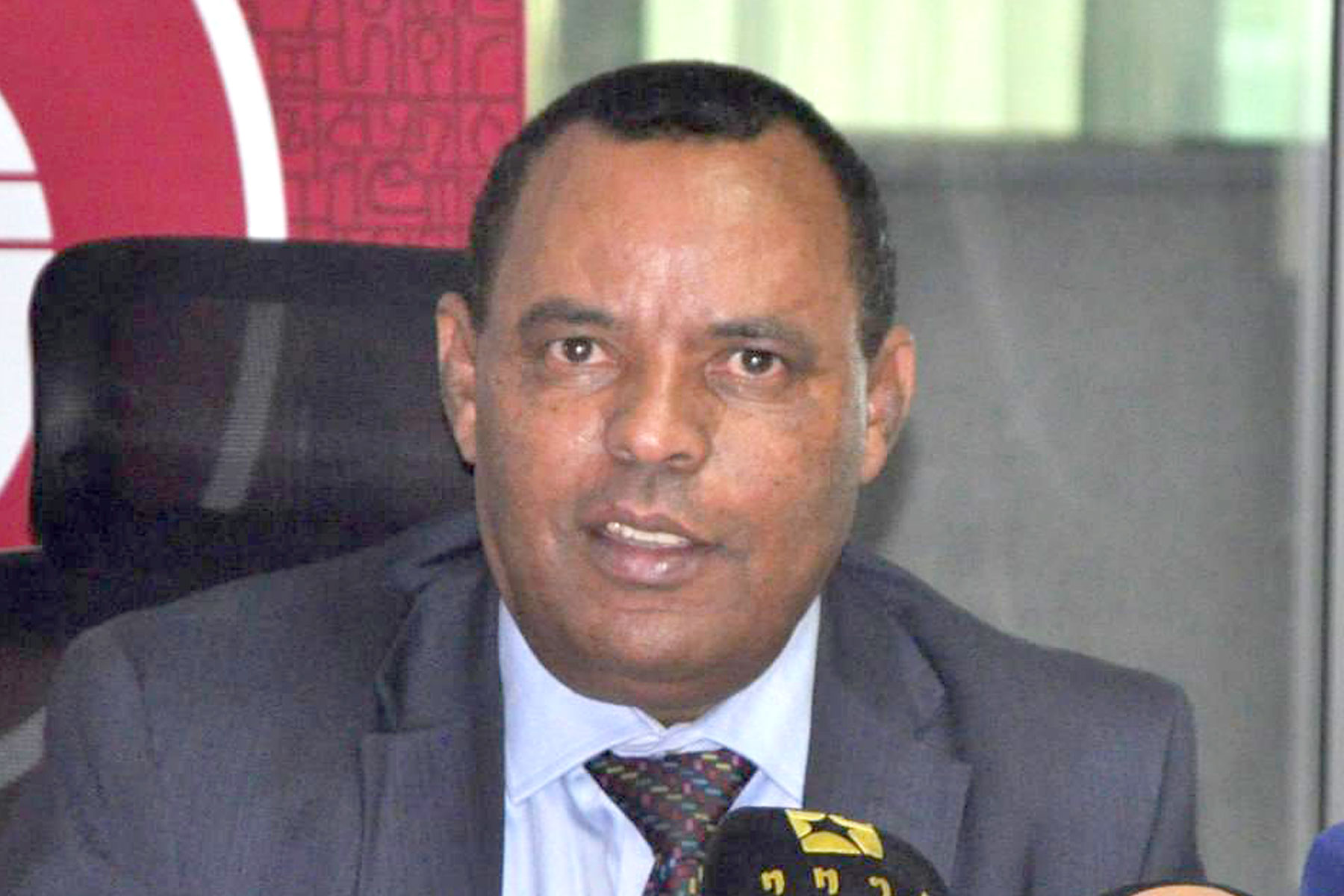
Fortune News | May 31,2025
Mayor Adanech Abiebie is contemplating inking a deal with private commercial banks to build real-estate projects through public-private partnerships with hopes of addressing the chronic housing demand.
The project office for public-private partnership was established a couple of months ago to involve the private sector in the city's upcoming projects. It has prepared close to 75hct of land in the centre and outskirts of the capital, while its officials are now pushing the banks to finance the construction within two years. They want to see the banks cover 70pc of the cost to their staff or prospective homebuyers while the rest is allocated to the Administration.
According to Jarso Golisa, director of the project office, the City Administration has decided to partner with banks with hopes that involving the sources of loans for projects can ease the housing problem while giving priority to their employees. He said that providing living space in one area is advantageous to the corporates, while their employees' former spaces will be left for residents that have registered for condominiums.
Out of the estimated over five million residents of the capital, nearly half a million have registered for condominiums in the decade beginning in 2005. Spending close to 10 billion Br every year on housing projects, the City Administration planned to build 300,000 houses.
Wegagen Bank is among the six private commercial banks that responded to the City Administration's request three weeks ago, planning to submit a proposal to the project office in 20 days. The Bank showed interest in building affordable housing for its staff while providing loans for homebuyers and developers. As a pilot program, Wegagen Bank is planning to provide housing for employees and considers affordability, comparing borrowing ability, according to Hussien Amdie, vice president for credit.
Authorities in the City Administration are keen to see banks permitted to incorporate subsidiary real estate companies. For Hussien, that will require banks to have a large budget and amended policies.
"We'll take it as a long-term plan,'' he said.
Hibert Bank has also submitted a proposal. The President, Melaku Kebede, believes the project is "sound and promising", although he foresees the implementation might take time.
Investment and financial experts echo the push for changes in policy and regulation to govern the relationship between the banks and the City Administration.
Yoseph Getachew, chief of RiseAddis Investment Advisory, worked as a financial advisor for Zemen Bank. He agreed that the idea is "catchy", with mandatory preparation to be done before implementation. The banks' failure, with no track record of financing long-term investment projects, would be a direct hit on the economy. He urged the central bank to prepare for the risks.
The central bank demands that only 10pc of the banks' capital be used in an investment, deepening the challenge to involve in such projects.
Zemen Bank's President, Dereje Zenebe, fears that the limitation would hinder them from getting involved despite the excitement.
"The regulation should be amended to let us get involved in long-term investments," he said.
Girum Tsegaye of Berhan Bank concurs. Banks are struggling with a liquidity crunch, some even taking loans from the central bank. As Berhan is building its headquarters, it will be challenging to get simultaneously involved in the project, said Girum.
The move to respond to the housing demand by developing real estate under the public-private partnership projects was also made by the Ministry of Urban Development & Infrastructure, which is conducting a study, according to Ethiopia Bedecha, the Ministry's communication director. A discussion was held with real estate developers and construction firms scouting their intrigue in building houses under projects.
"We've plans to work with them all," said Ethiopia.
While private banks are open to the idea, the affordability of the houses is up for debate if they fall into the hands of commercial banks. Real estate developers are apprehensive about getting knocked out of business as their finance sources are getting sucked into the business themselves.
The diversified portfolio holder, Alsam Plc, established in 1998, has built more than 600 apartment units in two locations in the capital - Casanchis and near Mexico Square. Marketing Manager Samson Wube did not conceal his fear of the financial sector playing a dual role.
"It would be better to work with developers," he said.
PUBLISHED ON
Dec 21,2022 [ VOL
23 , NO
1182]

Fortune News | May 31,2025

Commentaries | Nov 16,2024

Fortune News | Nov 24,2024

Fortune News | May 29,2021

Viewpoints | Jul 27,2024

Editorial | Aug 12,2023

News Analysis | Apr 13,2024

Verbatim | Jun 14,2025

Fortune News | Sep 08,2024

Radar | Jun 07,2025

Dec 22 , 2024 . By TIZITA SHEWAFERAW
Charged with transforming colossal state-owned enterprises into modern and competitiv...

Aug 18 , 2024 . By AKSAH ITALO
Although predictable Yonas Zerihun's job in the ride-hailing service is not immune to...

Jul 28 , 2024 . By TIZITA SHEWAFERAW
Unhabitual, perhaps too many, Samuel Gebreyohannes, 38, used to occasionally enjoy a couple of beers at breakfast. However, he recently swit...

Jul 13 , 2024 . By AKSAH ITALO
Investors who rely on tractors, trucks, and field vehicles for commuting, transporting commodities, and f...

Oct 25 , 2025
The regulatory machinery is on overdrive. In only two years, no fewer than 35 new pro...

Oct 18 , 2025
The political establishment, notably the ruling party and its top brass, has become p...

Oct 11 , 2025
Ladislas Farago, a roving Associated Press (AP) correspondent, arrived in Ethiopia in...

Oct 4 , 2025
Eyob Tekalegn (PhD) had been in the Governor's chair for only weeks when, on Septembe...